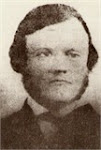Hi Doug,
My apologies for the lagged reply! I've tried to map out some of the salient issues below, and your welcome to share this on your blog if helpful.
Our decision on the participants in closed sessions was made after a significant amount of discussion: we wanted to be respectful of people's interests and well as legal and other obligations for CDAs.
As a group, we felt the presence of alders not already on the CDA who seek to collect information ahead of a vote, while valuable, is insufficient in and of itself to invite them in to closed meetings. It may improve the efficiency of the City Council's review and voting procedure because they are better informed ahead of time, but it could undermine the process by:
1. Reducing the quality and duration of City Council discussion and debate on projects which the public should hear at their meetings.
2. Not explicitly adding value to the CDA deliberations on developer agreements, compromising the precedents established in law and in practice where only people -- and it could be anyone -- who has valuable knowledge on a project may participate in a closed session by invitation or petition.
The Mayor was invited to participate in the meeting you were excluded from because of his ability to provide critical information on prior developments efforts and because he had personal history with the parties involved in the Meriter Clinic proposal. The CDA felt that history was important for its decision-making and a very good use of outside participation in a closed session because his knowledge was necessary for deliberations.
It's important to note that the frequent closed sessions held in the past year are actually an indicator of the CDA's success: those meetings are closed because developments projects are on the table. The fact that many of the meetings have been closed reflects that they are, largely, about significant projects that because of their size and the amount of investment capital involved could place the companies at a competitive disadvantage if their interest in Monona is widely known before agreements are finalized and presented to the City Council. Projects like UW Health, the Princeton Club Express, and Meriter are well beyond the scope of dealing with national franchisors for typically smaller-scale projects.
It would be wonderful if you could remind your readers that the participation of the two current alders is a critical reason for the group's recent success, and that the design of the CDA with their inclusion is another institutional mechanism by which alders with deep knowledge on a project may convey important details on deal history and structure to other members without inviting all of them to take an active role in the CDA. The CDA also includes members of the Monona community, and we'd welcome your readership to please consider serving on the committee as their role is also valuable!
My very best wishes,
John
Tuesday, October 19, 2010
CDA Member Responds
A few weeks ago I took the Monona CDA to task for excluding city council members from the CDA's closed sessions. Last week I received a thoughtful response from CDA member John Surdyk and am posting it below:
Subscribe to:
Post Comments (Atom)
















No comments:
Post a Comment